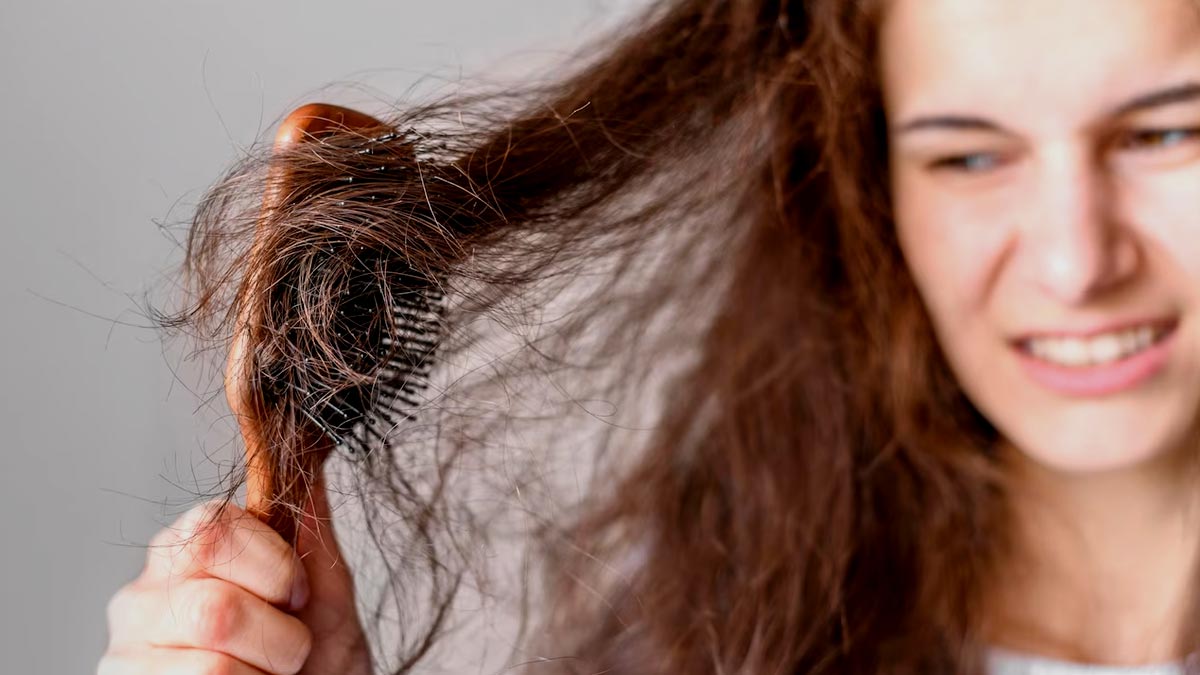Is Stress Responsible For Telogen Effluvium


In modern life, stress has become an almost constant companion. From work pressures to personal challenges, it’s no secret that stress can take a toll on our well-being. But could it also be the hidden culprit behind a condition known as telogen effluvium? Let’s know what it is and its link with stress.
What Is Telogen Effluvium
Telogen effluvium is a type of hair loss characterised by excessive shedding of hair. Unlike male or female pattern baldness, which often result from genetic factors, telogen effluvium is temporary and usually caused by various triggers. In an interaction with OnlyMyHealth, Dr SK Gupta, DMCH, Darbhanga, Bihar, explained how stress is responsible for telogen effluvium.
The Hair Growth Cycle
To comprehend how stress might contribute to telogen effluvium, we must first understand the hair growth cycle. Hair goes through different phases: the growth phase (anagen), the transitional phase (catagen), and the resting phase (telogen). According to the National Library of Medicine, about 85% of hair is in the growth phase, while the remaining 15% is in the resting phase.
Telogen effluvium occurs when a higher proportion of hair enters the resting phase, leading to noticeable shedding.

Also read: Benefits Of Hair Mask On A Frizzy Hair: How To Apply
Stress and Its Effects on the Body
Stress triggers a cascade of physiological responses in our bodies. The “fight or flight” response is activated, releasing hormones like cortisol and adrenaline. While this response evolved to help us deal with immediate threats, chronic stress can disrupt our body’s delicate balance. It affects everything from sleep patterns and immune function to hormonal regulation.
The Stress-Hair Connection
So, how does stress relate to hair loss? One theory is that chronic stress can disrupt the normal hair growth cycle. Stress hormones, particularly cortisol, can push more hair follicles into the resting phase, leading to increased shedding. Also, stress-induced changes in blood circulation might impact the delivery of nutrients and oxygen to hair follicles, affecting their health and growth.

Telogen Effluvium and Triggers
It’s essential to note that telogen effluvium can be triggered by a variety of factors beyond stress. These can include sudden weight loss, hormonal imbalances, illness, surgery, or certain medications. In fact, identifying the specific cause of telogen effluvium can sometimes be challenging due to its multifaceted nature.
Stress as a Contributing Factor
While stress alone might not be the sole cause of telogen effluvium, it’s increasingly recognised as a contributing factor. Chronic stress can increase underlying conditions that trigger hair shedding. For instance, someone already predisposed to telogen effluvium due to hormonal changes might experience more noticeable hair loss during periods of intense stress.
Managing Stress for Healthy Hair
Given the potential link between stress and telogen effluvium, managing stress becomes crucial for maintaining healthy hair.
Techniques like regular exercise, deep breathing, and meditation can help alleviate stress’s impact on the body. Adequate sleep and a balanced diet rich in nutrients also play a role in supporting hair health.
While the relationship between stress and telogen effluvium is complex, it’s clear that stress can contribute to disruptions in the hair growth cycle. knowing that stress is just one of many potential triggers for telogen effluvium is essential.
If you’re experiencing noticeable hair loss, consulting a medical professional is advisable to determine the underlying cause and appropriate treatment.
Taking small steps to manage stress not only benefits our overall well-being but also supports healthy hair growth. Remember, self-care isn’t just a luxury; it’s a vital component of maintaining our health from the inside out.
